
Our Search to Buy a Campground
Our Search to Buy a Campground
Insights into the process of buying this unique type of real estate.
By: Heath & Alyssa Padgett
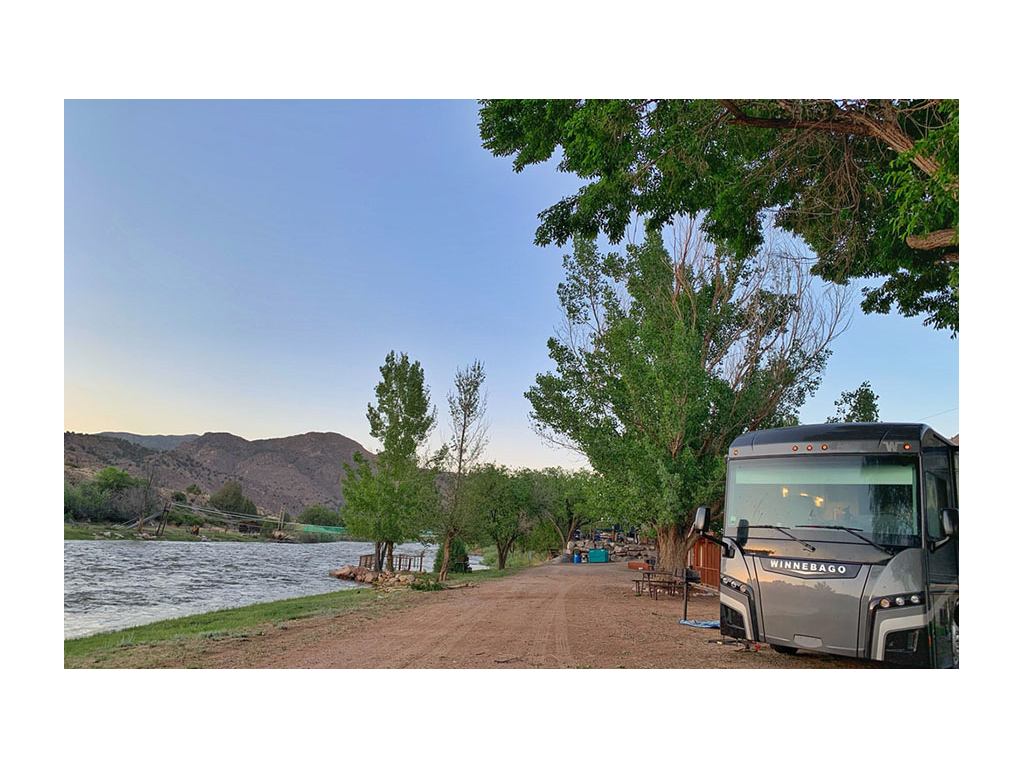
Once a day, I come up with a ridiculous business idea that will never see the light of day.
However, every now and then an idea sticks around, and - for whatever reason - it just won’t go away.
For Alyssa and me, that idea was to buy a campground.
The Inspiration to Start a Campground
We’ve spent most of the past six years living in RV parks and campgrounds across the country and a good majority of them fall flat from an expectations perspective (though not all, here are a few of our favorite beachfront parks).
We first started noodling on the idea of starting our own campground during our 2018 RV Entrepreneur Summit, a conference we host for nomadic entrepreneurs. We were hosting RVE that year at a campground in Fredericksburg, TX, and we’d set up a little coworking space for attendees with fast internet, coffee, and beer.
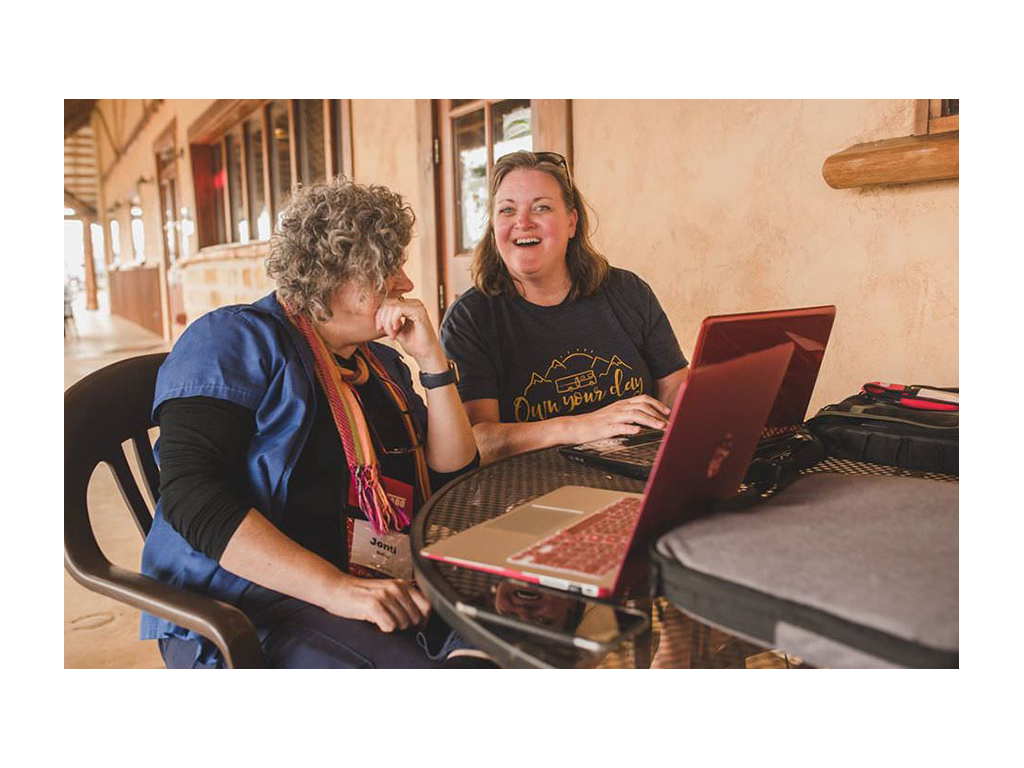
We fantasized about how cool it would be to do this at our own property one day. We were mostly daydreaming, but that’s how it always starts.
What was appealing to us was not just the idea of gathering friends in a circle to drink coffee and beer, but bringing together a group of like-minded people in one place. People who value experiences in the outdoors and are also building cool businesses on the road, like us.
After our conference in 2018, we spent two months campervanning in New Zealand and were also inspired by the Kiwi ‘holiday parks’ (their version of RV parks).
Unlike their American counterpart, many holiday parks were centered around communal spaces, such as a kitchen or large living-room-type area. A big reason for a group kitchen is that many people travel in smaller vans and need access to more space, but it also promotes a fun sense of community that we had rarely felt while traveling at U.S. RV parks.
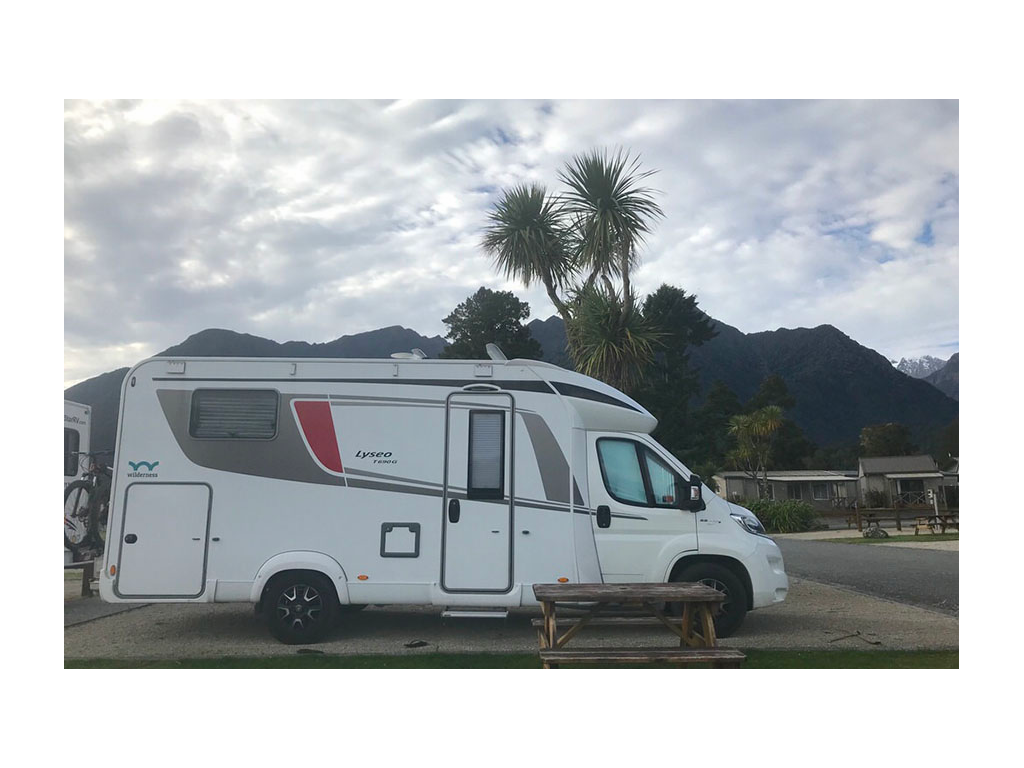
As time went on, our dream of buying a campground became a topic of daily conversation. In my spare time, I would peruse sites like RV Parks for Sale, looking at what new properties were coming on the market. Last year, when Ellie was four weeks old, we even took a spur-of-the-moment trip to Colorado to look at a park we were interested in.
While the idea of buying a campground feels intimidating and at times overwhelming, it’s the good kind of scary. While planning what we wanted to focus on in 2020, we decided that finding a campground to buy would be our top goal. We would hit the road and prioritize our route around looking for campground properties for sale in places we were interested in buying (primarily Colorado and Tennessee).
Our campground operation experience is limited to our experience as RVers and also my experience running CampgroundBooking.com, an online reservation system for campgrounds. Since this is our first time purchasing a campground, we wanted to learn as much as possible about buying and running campgrounds from people who are already running awesome parks.
The Campground Search Begins
While planning our route this year, we asked for help from fellow RVers (in the RV Entrepreneur Facebook group). Where is the absolute best place you’ve ever camped? What made it special? The goal would be to take notes from various parks who were doing specific initiatives really well (i.e lots of space between sites or amazing customer service).
Not only did we come up with a list of great parks to visit, but we also learned a ton about what our community wanted in a campground experience.
A few of the top recommendations were:
- Community areas (like an onsite coworking space for remote workers)
- Spacious (and level!) campsites
- Large dog park
- Blazing fast WiFi
- Opportunities to host events and memorable onsite experiences
To help see some of these ideas in action, we plotted all of the campground suggestions on a map to visit throughout the year.
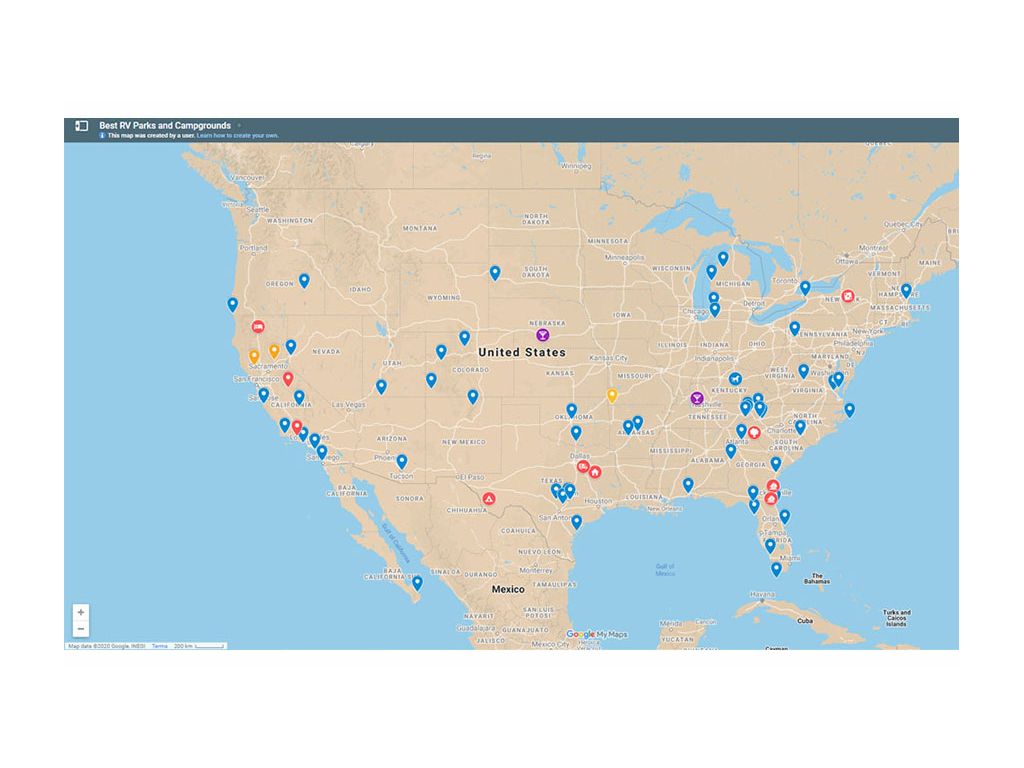
Click here for an interactive version of this map.
Our route to visit some of these places spanned from Florida to California, but once the pandemic hit, we had to make adjustments - which means missing out on a few amazing parks.
Ultimately, we decided to narrow our focus down to just Colorado, because who doesn’t love Colorado? This has been a dream state for us for some time and we picked it because we felt it would be an incredible place to raise Ellie and own an outdoor hospitality company.
Since arriving early in June, we’ve looked at nearly a dozen RV parks in person, talked with land architects (yep, that’s a real job), and have learned a lot about what we want and don’t want in a campground we buy.
What We’ve Learned About Buying Campgrounds (So Far)
Look at what is above AND below the ground.
When visiting most campgrounds, it’s easy to look around and see what kind of shape the facilities and buildings are in. However, it takes a bit more probing to look at what is below the surface.
For example, at one park we visited, we plugged in our RV and the electricity didn’t work. As we dug deeper, a lot of the systems were not maintained and set up correctly and this would be a major headache and expense right off the bat.
At another park, we learned that at 10% occupancy they were using almost half of their septic system! So, we couldn’t grow our occupancy without ... well ... you can imagine. Our business partner is a seasoned contractor and is incredibly helpful as we learn about the onsite systems that make up a campground.
If you’re thinking about buying a park, I would highly recommend having a trusted advisor or contractor take a look at the systems before pulling the trigger.
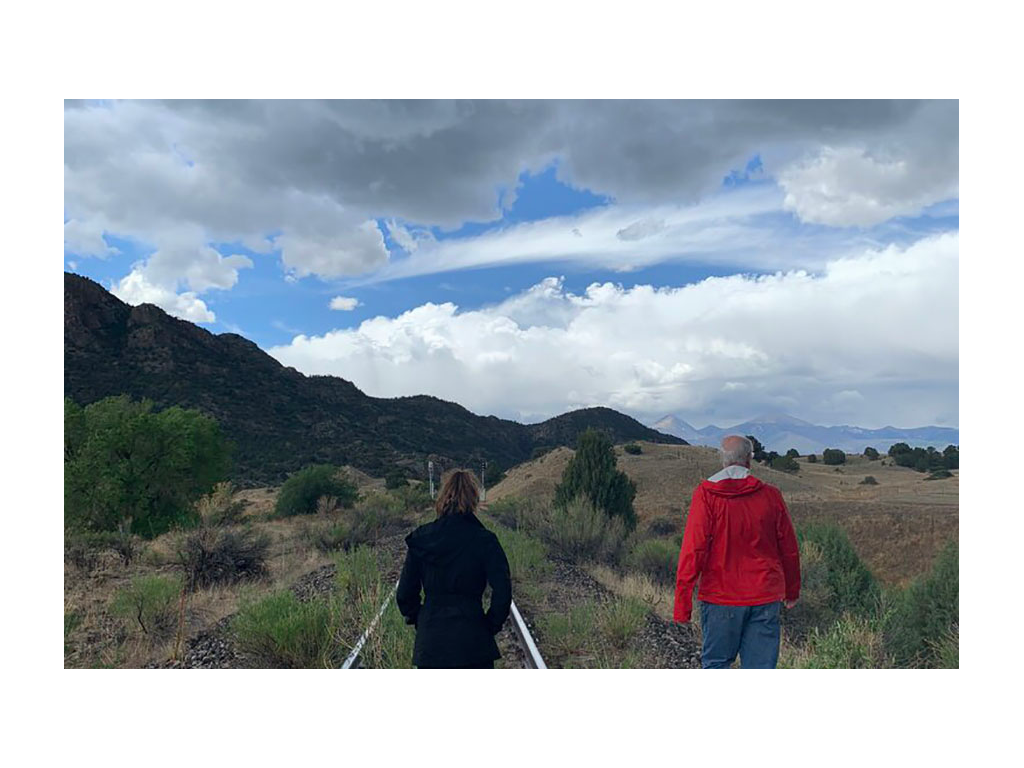
Understanding cap rates to value a property can be useful. (But could also be totally irrelevant).
Another thing we learned is that many campgrounds in Colorado aren’t valuing their property based on capitalization rates (aka cap rates). Quite a few RV parks for sale online will market their property at an 8% or 10% cap rate – which is calculated by taking the net operating income (NOI) and dividing that by the property value. (So, a million-dollar property with an NOI of $100K would be a 10% cap rate).
This basically says that if you come in and slightly improve processes, you can ultimately have a decent return on investment (aka the business model is proven). According to a real estate investor friend of ours, a 10% cap rate is considered a pretty solid target for purchase.
Instead of capitalization rates, many of the parks we’ve visited this year are valuing themselves based on land, infrastructure, and “potential.” We’re new to the real estate world and we aren’t opposed to buying property based on its potential if it fits our vision, but this was something that we didn’t particularly expect to be the case. (Like the park on sale for $3M that has lost money for the past 12 years in a row.)
Earlier this year, I spoke with a friend who has a lot of experience buying self-storage facilitates as part of a larger investment fund. He told me they won’t touch a property that doesn’t have a decent cap rate as it doesn’t fit their investment strategy.
On the flip side, this past week, I spoke with a campground owner who recently bought a park that barely could share any financial data and a capitalization rate wasn’t even calculatable. They bought the park because they felt they could come in and vastly improve the business and in less than eight months they’ve more than doubled the rates and occupancy for the park. In this scenario, it was useful for them to not purchase based on a cap rate.
My takeaway after looking at campgrounds is that cap rates can be helpful in calculating value, but they can also be ignored if a property really fits our vision.
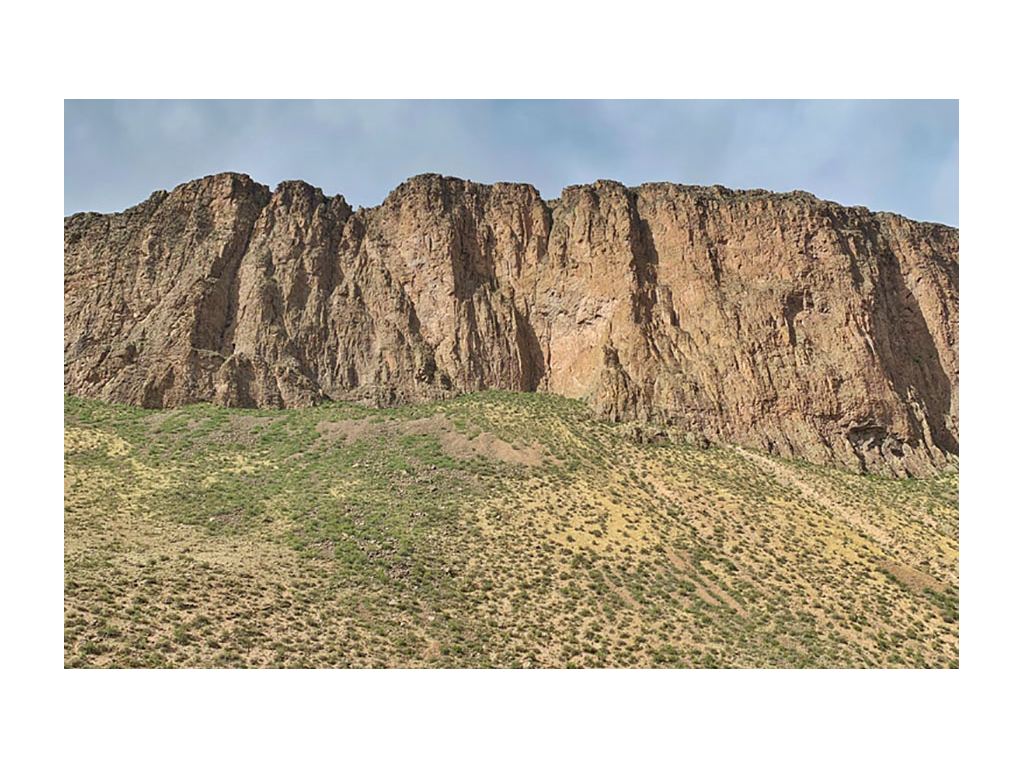
Some of the best deals may not be posted online.
This is probably true in most scenarios, but it’s something we’ve started to see in our campground search as well.
By now we’ve seen around 30 parks for sale – in person and online and even via Facetime. So, we quickly exhausted the list of properties we’d found for sale on listing websites. To help come up with more options, we emailed friends, local realtors, and asked our Facebook group if they knew of any campgrounds in Colorado who might be open to selling.
As it turns out, this has been an interesting way to find off-market opportunities. We haven’t yet found a winner, but almost all of the off-market properties have been more interesting to look at than the ones we’ve found on listing sites.
It’s important to be patient when searching for real estate.
On at least three (or more) different occasions, after looking at a park, I’ve been ready to pull the trigger and make an offer. Both Alyssa and our experienced business partner are the level-headed yin to my over-eager yang.
On one occasion, I was ready to throw out our original business plan of high-speed internet and coworking to exchange it for starting a professional rafting business (I’ve been rafting once). Probably not my best idea.
Point being, as eager as I am to buy a park right now, I recognize this is (hopefully) going to be a business we operate for a long time. It makes sense to not rush into this, but instead find a great deal for the right place and park that we can nurture for years to come.
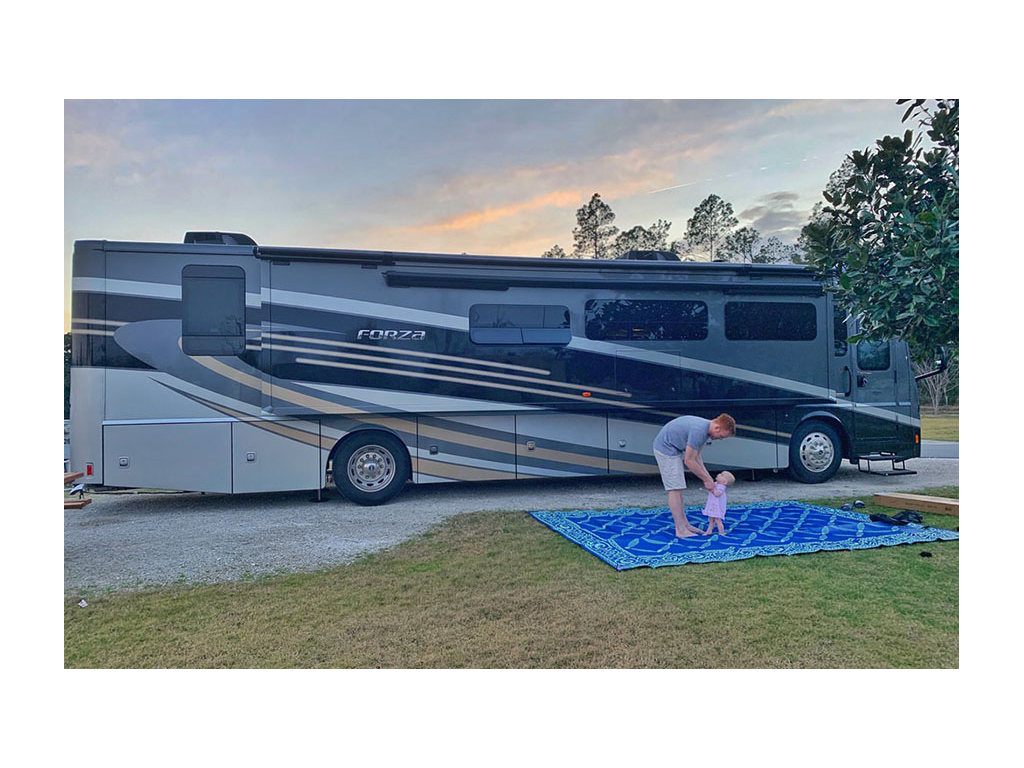
From personal experience and talking with other Rvers, one of the main selling points of a great campground is the amount of space between the sites.
What’s Next in Our Campground Search
When starting anything new, you’re going to hit barriers. Like many others, the pandemic has thrown off the amount of traveling we could do this year to look at properties and also placed a level of uncertainty into the air of “what’s next”? In a best-case scenario, we would have found our ideal park already and been able to hit the ground running. I don’t think entrepreneurs start new businesses based on certainty, but hope and optimism that a need can be filled.
I still believe in our campground vision and dream. It makes me excited to think through park layouts and being able to test new Campground Booking technology at our property and host people from all over the world.
In the meantime, we will continue looking for off-market campground opportunities here in Colorado and learning as much as we can prior to pulling the trigger.
If you were going to build your dream campground from scratch, what would be your top amenities you’d put in it?
Comments
Comments on this post are moderated, so they will not appear instantly. All relevant questions and helpful notes are welcome! If you have a service inquiry or question related to your RV, please reach out to the customer care team directly using the phone numbers or contact form on this page .